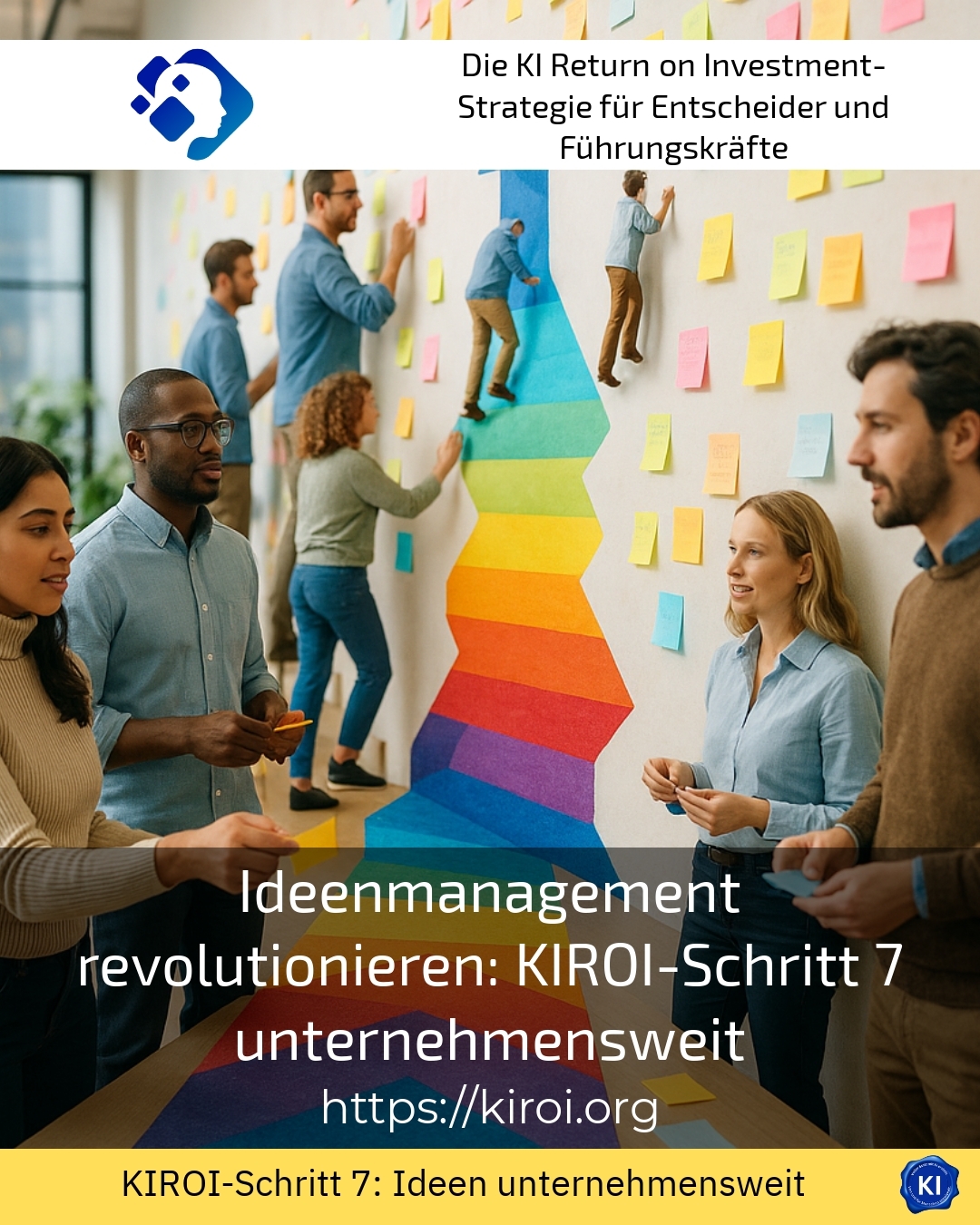The topic of ideas management is becoming increasingly important in many companies. It is no longer just about collecting individual suggestions. Instead, ideas management is seen as a continuous process that promotes creativity and creates structures for implementation. KIROI Step 7 in particular offers an innovative approach to sustainably support ideas throughout the organisation and effectively shape the entire process.
Idea management as a continuous companion in the company
Idea management today means much more than simply collecting suggestions. It is a dynamic process that actively involves all employees. Practice has shown that targeted workshops and feedback cycles can significantly shorten development loops. Idea management thus promotes the transfer of knowledge between departments and increases the speed at which complex innovations are implemented.
In the mechanical engineering industry, for example, moderated workshops can get product innovations into production faster. Software development companies are strengthening collaboration and improving the quality of new features by actively involving development teams. At the same time, retail companies rely on digital platforms that allow employees from different branches to exchange and implement ideas transparently.
Idea management and the role of digital platforms
Digital platforms play a decisive role in modern idea management. They make it possible to record suggestions centrally and document them transparently. This enables obstacles to be recognised and overcome at an early stage. In industrial production, digital suggestion platforms ensure that ideas can be checked and implemented quickly.
Digital solutions are also having an impact in the healthcare sector. Communication barriers are being broken down and motivating feedback established. This leads to a noticeable increase in active participation in the development of ideas. In software development, joint retrospectives and feedback loops promote better coordination and implementation of customer requirements.
Another example from the retail sector: automated workflows ensure that submitted ideas can be quickly reviewed and implemented. Industrial production benefits from regularly moderated innovation workshops that strengthen interdisciplinary dialogue.
Idea management and the culture of openness
A culture of openness is crucial for successful idea management. Communication barriers must be broken down and all employees should feel encouraged to contribute their ideas. In practice, targeted coaching has been shown to establish such a culture.
In a manufacturing company, KIROI Step 7 was used to develop a concept that systematically identified obstacles to implementation. Targeted workshops improved the transfer of knowledge between the specialist departments, which significantly increased the speed of innovation projects. The measures led to a stronger culture of innovation and sustainable growth.
In software development, increased collaboration between teams leads to faster customisation and better product features. Retail companies rely on digital suggestion platforms that promote the exchange of ideas between locations and allow ideas to be implemented more efficiently.
Idea management and the role of workshops
Moderated workshops are a central component of idea management. They create space for interdisciplinary dialogue and help to shorten development loops. In the mechanical engineering industry, moderated workshops reduce development loops and accelerate innovation.
In software development, joint retrospectives and feedback loops promote better coordination and implementation of customer requirements. Industrial production benefits from regularly moderated innovation workshops that strengthen interdisciplinary dialogue.
Another example from the healthcare sector: a culture of openness to suggestions for improvement was established through targeted coaching. Communication barriers were broken down and motivating feedback was established. This led to a noticeable increase in active participation in the development of ideas.
BEST PRACTICE with one customer (name hidden due to NDA contract) In the area of industrial production, step 7 was used to systematically identify obstacles to the realisation of promising ideas. The obstacles were removed through moderated workshops. This resulted in an accelerated realisation of innovation projects and a more intensive exchange between the specialist departments, which sustainably strengthened the innovative power.
My analysis
Today, idea management is an indispensable component of successful companies. It is not just about collecting suggestions, but about creating a culture that promotes creativity and establishes structures for implementation. KIROI Step 7 offers an innovative approach to sustainably support ideas throughout the organisation and effectively shape the entire process. Digital platforms, moderated workshops and targeted coaching are key elements for successful idea management.
Further links from the text above:
KIROI step 7 for company-wide ideas
Unleashing ideas management: KIROI step 7 company-wide
Rethinking idea management: KIROI step 7
With idea management KIROI step 7 company-wide
For more information and if you have any questions, please contact Contact us or read more blog posts on the topic Artificial intelligence here.















